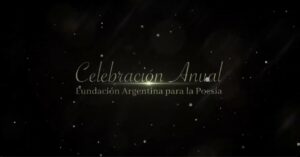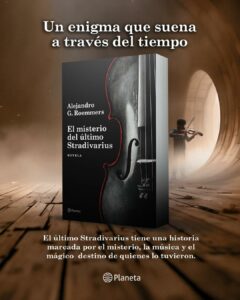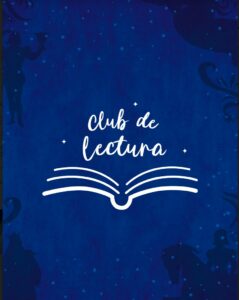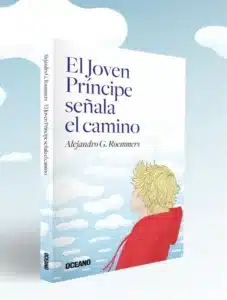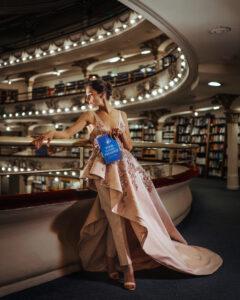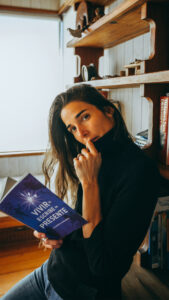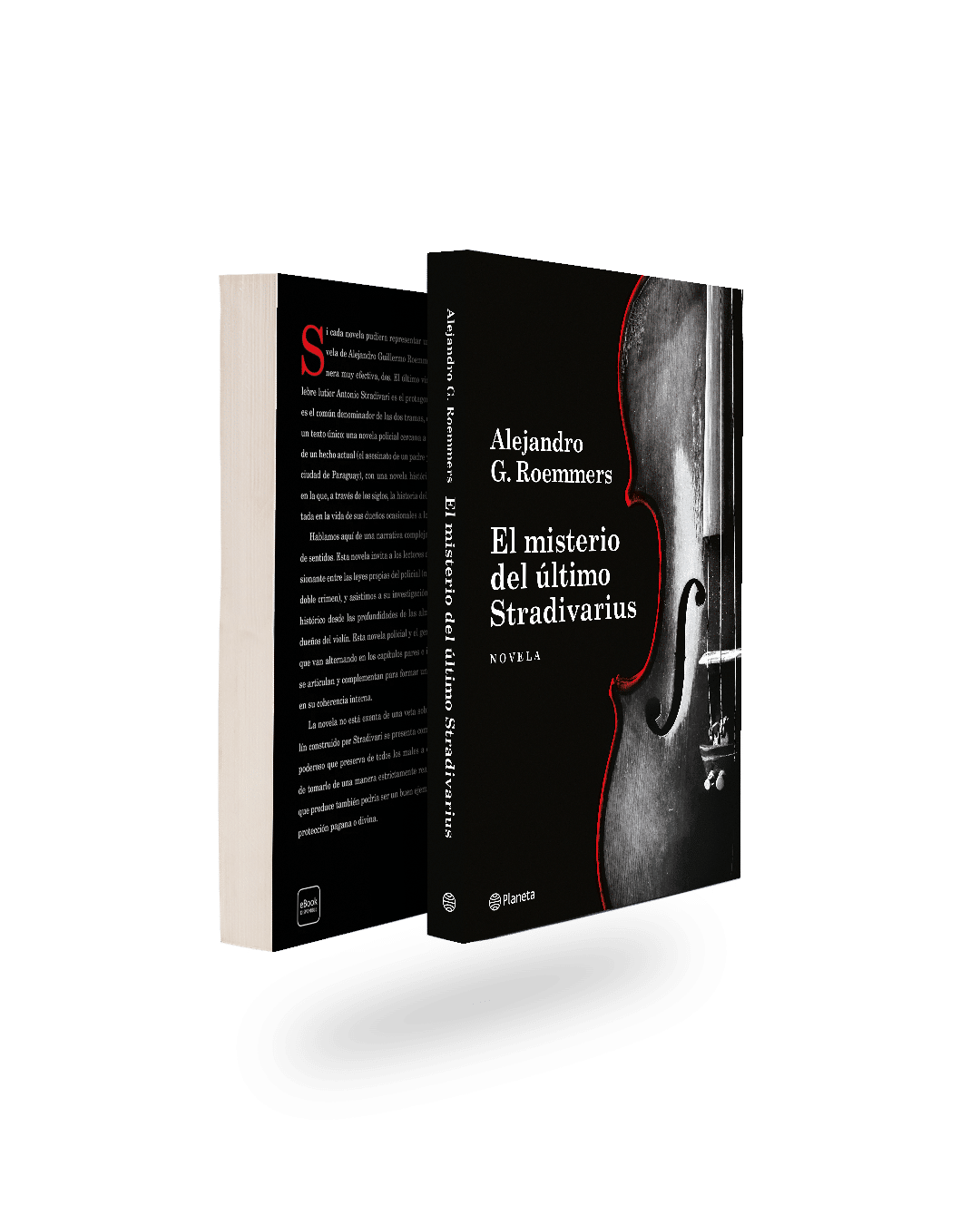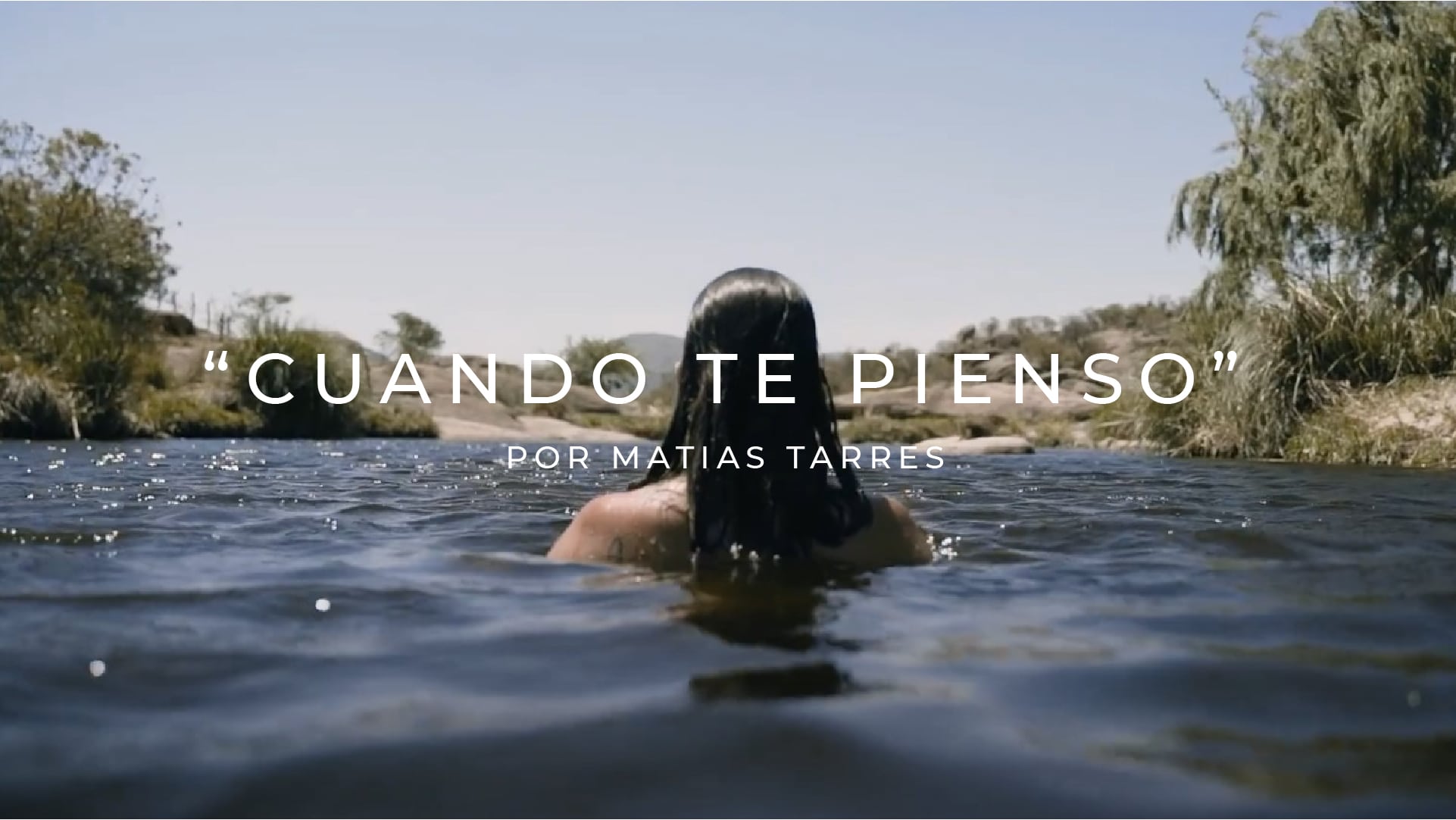The businessman, philanthropist and writer presents this afternoon at the Book Fair “The Young Prince points the way”, a new chapter of his character based on the classic story by Antoine de Saint-Exupéry
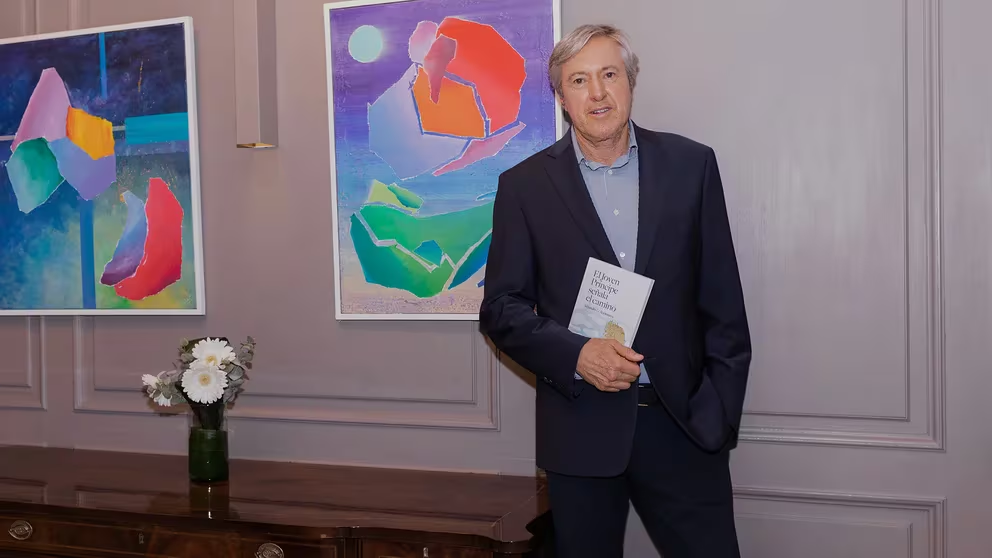
He spends most of the year outside the country, following an itinerant life of business, philanthropy and writing without a fixed base, but these days he is back in Buenos Aires. On Wednesday night he participated inthe annual dinner of the Libertad Foundation where Javier Miley He offered a histrionic speech to the guests and this Friday he presents his new work at the Book Fair,The young prince points the way, a continuation of the successful novel he published in 2008,The return of the young prince, based onThe little Princeof Antoine de Saint-Exupéry. The book ofAlejandro Roemmers It sold more than 3 million copies in 30 countries and was translated into several languages.
In this new novel, the businessman and literary author explores the complicated relationships between adolescents and adults, the influence of social networks and screens on the perception of our environment, and the balance between technological progress and comprehensive knowledge based on tradition. The plot takes place in a prestigious school where the arrival of Juan – the Young Prince – from Patagonia introduces a perspective that transforms the classroom ecosystem. This second installment, which can be purchased at its own stand on the La Rural property and soon in bookstores, is an invitation to reflect on human connection in the digital age.
Although he dedicated himself to the family business for a time, the grandson of the founder of the Roemmers laboratories decided at the age of 45 to give up his shares in the company to dedicate himself fully to writing. Since then he has garnered various distinctions and recognitions: he was declared an outstanding cultural personality by the Buenos Aires Legislature, appointed by the SADE as ambassador of Argentine literature and was even nominated byAlejandro Vaccaro –president of the El Libro Foundation– for the Nobel Prize in Literature. To these merits are added others for his work alongside the Fransicana Order and foundations such as Fratelli Tutti, with which he will soon hold a meeting with the Nobel Peace Prize winners and a hug in Rome for universal brotherhood.
–In one of the pages of this new book he makes the Prince say: “The path you choose takes power over your person (…) That is why each person must follow the most appropriate one for himself.” What was it like for you to choose the path of literature?
–Since I was a child I was attracted to art, especially writing. Perhaps if I had been in a completely aseptic situation I would have chosen to study literature or philosophy, but sometimes there are conditions by which one is not totally free. In my case it was the family business. I excelled in everything, not only in the literary part, I was also very good in mathematics. So my family was very hopeful that I would go into the business and there was a time when I had to decide what to do. I traveled a multifaceted and complex path, but it finally led me to what I felt. I dedicated myself to learning the family business and in that way I was able to earn the financial means to live the life I like, although I was also dedicating time to those things that fulfill me spiritually. During that time it was poetry and friends.
–How do you divide your time between business and literature?
–I wish it were just that, I do so many other things and time management is the most difficult. Since I was a child I have had a vocation for service and helping people and I dedicate a large part to philanthropic activity. Through poetry, which was a bit of my spiritual path, I obviously seek beauty but also faith and try to sow hope. Love in a broad sense, for human beings in general, is the main thing. I retired from daily work in the family business years ago, but I am still involved in the running of the business and outside the country I have my own companies related to microtechnologies. I also ventured a little into the audiovisual field, collaborating with scripts for some series and we are looking at making a movie, but what I have dedicated the most time to lately is novels. I just finished another one that, God willing, I will present next year. I think it is the most literary and important novel I wrote in a couple of years.
–His last book ventured into crime novels. What led you to return to the story of the Young Prince after so many years?
–The editor had a lot of influence, who asked me to continue The Return of the Young Prince. But when I wrote it, I also gave it an ending that would allow me continuity, and I also knew what I wanted to do the day I continued it. I wanted, for example, for this young man to go to school. Life takes you and I got involved with the other novels, but it was just about grabbing it and paying attention to it. This book comes from deep within me, the young prince is in some way my spiritual being, my way of feeling life. The only thing I had to decide was whether or not to give him special powers. And I decided no, I wanted him to be a young human being like any other so that others can put into practice what he does in their own way. This character encounters a course where there are divisions and with small gestures and details he achieves an evolution of consciousness of that entire group until they end up much more cohesive, valuing each other and being able to do things together.
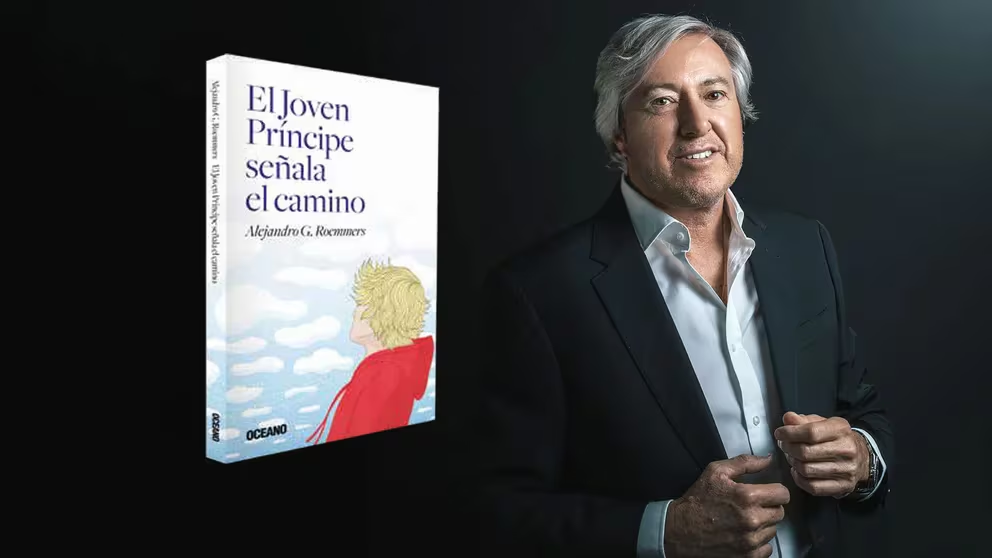
–One of the themes that this new story addresses is the dependency generated by screens.
–We are constantly entertained, stimuli comes to us from all sides and we have little time to be silent, reflect, get to know ourselves, feel. We are increasingly linked to technology, the human being is becoming a kind of robot and it is not clear where this mix with artificial intelligence will end. But something inside me tells me that the human spirit must be preserved in some way, because otherwise all this creation of the world would have no meaning. If a higher intelligence had wanted that, it would have directly made machines, it would not have created a being with all the imperfections of the human being. Technology is also fantastic, thanks to it in the pandemic we were able to manage ourselves remotely and in our area of health it brought us advances that have prolonged the life of human beings. The great challenge is that we continue to have technology as an ally to live better, hopefully in peace and with progress for everyone. Let it be something that is at our service and increases our life possibilities and enriches our experience, not something that ends up subjugating us.
I financed a series called Addicted to Screens, because today technology is especially gaining popularity among young people and someone who is ten or twelve years old who does not yet have criteria and a way of reasoning about a lot of things, such as You better believe what the screen shows you and we have this whole invasion of fake news and so on that distorts things. The problem is that they create addiction, because they are analyzing you all the time and they are going to give you images of everything that interests you. There is an addiction to recognition, to like to belong to the group, to sex, to the game. Right now that we are talking about education, I think we have to rethink what really has to be taught. In the past we studied many things by heart that now one can find out. Today the most important thing is to teach discernment, develop common sense and be able to work as a team. I think that is the great success in many societies. We Argentines are very independent, many times we want different things and it is difficult to work together.
With the Fratelli Tutti Foundation we try to show the world how much we would gain if instead of competing we could collaborate. If, for example, the United States and China, instead of being at odds and spending fortunes, complemented each other. I always say that more important than environmental ecology, which of course deserves attention, is human ecology. Take care of the human being, because a sick, fanatic or unbalanced human being will destroy everything. Today the lack of empathy with others is dramatic.

–He was at the Libertad Foundation’s annual dinner last night. What impression did President Milei’s speech leave on you? Do you think your confrontational style helps you lead the country?
–It was interesting because there were also speeches by the current president of Uruguay and former presidents. I believe that he wanted to speak especially to the economists and we understand his spirit a little because he had to take charge of the country in a terrible situation. We were really more than on the brink and he somehow managed to keep us there. To the extent that we all become aware of where we were and that we cannot continue there, I believe we have an opportunity to change and have development. We must be grateful that this man, with his style and his way, managed to channel at least a desire for change that he is putting into motion with all his energy and conviction, without wanting personal benefit. He is convinced that the root of the problem is the uncontrolled emission of money and that one cannot spend more than one earns. Thank God society accompanies him because it knows that there was no other possibility at that moment than to go to the total destruction of the economy.
I hope that with your team you will find the steps to get out of this terrible situation in which we still find ourselves. It is an adjustment that brings unemployment, poverty, and until this rebounds and we grow again, we will have to go through a very bad but inevitable period. The State has to have the discernment to help those who are really most in need. Argentina is a supportive country and I believe that no one wants to allow someone around them to suffer. There are things that the State cannot fail to guarantee, such as security, a minimum of health, and also helping the education of those who cannot comply in any other way, because if not, it will not be an evolved and free society.
–Do you think that budget adjustment was necessary in public universities and in the area of culture?
–These are things that must be done efficiently. We must be able to recognize merit, grant scholarships to the most talented and give opportunities to those who do not have access to education in other ways. For that, we will have to put interveners and see how the resources are used. It would be very nice to have an education where a lot of technological evolution can be incorporated, as we see in the book I am launching, but for now it is a luxury that we cannot afford. We will go little by little, but we cannot leave people without a minimum of social support and without the possibility of educating themselves. If we want to aspire to have a level of education of excellence, that must be a State policy that we can all assume and even if the governing party changes, continue in that because there is a common project for the country. And regarding the culture that is promoted by the State, you have to be careful because cronyism and a lot of other things are always there. It would be good to appoint councils of people with different ideologies and ways who can choose the projects with the best characteristics.
–Does your intention to found the Borges Museum still stand in this context?
–We are still in talks. I am speaking with the current authorities, who are interested and we are looking at all the possibilities we have. It’s not just the money, but also finding the right place and the human group that can drive that. We must give the collection a physical entity for safekeeping, on the one hand, and ensure that it can be studied by researchers and visited by tourists or schools. It has to be housed somewhere and I would like, regardless of whether we do it privately or jointly with the State, to be able to offer that material to the world, because Borges is from an intellectual point of view the most notable thing that Argentina has. I want to give it that flight, because ultimately for me the important thing about Borges is not his manuscripts, even though they are worth a lot of money, but his ideas, his challenges and the questions he leaves. I haven’t been able to dedicate so much time to the project lately but I’m seeing how we can put it into practice.
